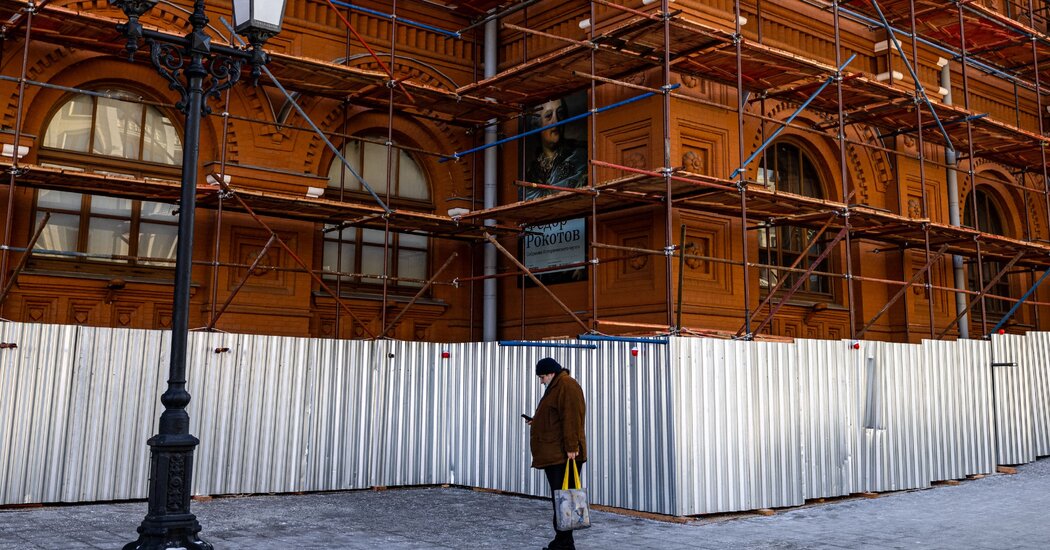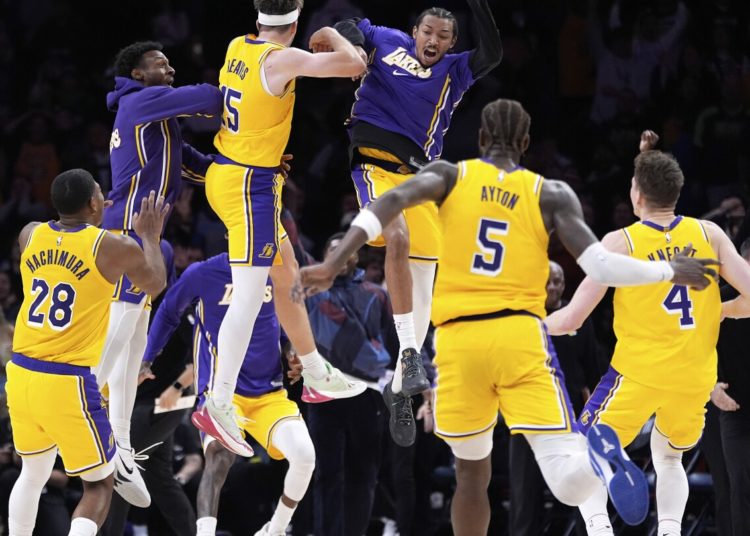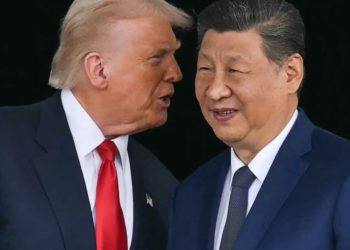Russia is escalating its efforts to curtail online freedom, taking new steps toward a draconian state-controlled internet.
The authorities are cracking down on workarounds that Russians have been using for access to foreign apps and banned content, including through new laws signed by President Vladimir V. Putin this week. Moscow has also been impeding the function of services from U.S. tech companies, like YouTube, that Russians have used for years.
At the same time, the Kremlin is building out a domestic ecosystem of easily monitored and censored Russian alternatives to Western tech products. That includes a new state-sanctioned messaging service, MAX, which will come preinstalled by law on all new smartphones sold in Russia starting in September.
The idea, experts say, is to migrate more Russians from an open internet dominated by the products of Western tech giants to a censored online ecosystem, where Russians primarily use software under the gaze and influence of the state. The effort has advanced significantly amid wartime repression, but it is unclear how far it will go.
“The goal here is absolute control,” said Anastasiia Kruope, a researcher at Human Rights Watch who wrote a recent report on declining Russian internet freedoms.
The Kremlin wants to control not only the information available online but also where and how internet traffic flows, Ms. Kruope said, so the Russian internet can function in isolation and be switched on and off at will. Russia’s technical capabilities for clamping down are improving, she added.
“They are not perfect,” Ms. Kruope said. “They are not nearly at the level they would like them to be. But they are getting better, and this is the reason to start paying attention.”
A History of Vanishing Freedoms
Unlike China, where users have been restricted since the dawn of the internet, Russia long boasted one of the most open and freewheeling environments anywhere online. Operating with virtually no barriers, millions of Russians flocked to Western tech platforms, posted critical news and freely expressed their thoughts on the web.
The Kremlin began to see that freedom as a threat, particularly after the rise of the opposition activist Aleksei A. Navalny, who died in prison last year. His exposés of the Putin elite, initially publicized in Live Journal blog posts and later in popular YouTube videos, gave him millions of followers online and the power to mobilize mass protests on the street.
Since the first decade of Mr. Putin’s rule, Moscow had been articulating a vision for what it called a “sovereign” internet that would sever Russia as much as possible from the rest of the online world and strip power from foreign tech firms, which didn’t always give in to the Kremlin’s demands.
But Mr. Putin’s full-scale invasion of Ukraine in 2022 gave the government the opportunity to accelerate the plan.
On the eve of the invasion, the state indirectly took over VK, the country’s biggest social network, harnessing a platform with millions of existing users to popularize Russian alternatives to Western tech products. The son of Mr. Putin’s powerful first deputy chief of staff, Sergei V. Kiriyenko, was tapped to run the company.
Moscow banned Facebook, Instagram and Twitter outright and took steps that caused TikTok to disable functions in Russia. Lawmakers passed draconian laws stifling free expression in the streets and online.
Last year, after building out a video-streaming service on VK, Russia began throttling YouTube, pushing users toward the domestic alternative, though with mixed success.
Now, with the introduction of MAX, authorities have signaled they may take aim at foreign messaging apps, in particular WhatsApp, which is owned by Meta and counts nearly 100 million monthly users in Russia. Telegram could be a target as well.
Anton V. Gorelkin, deputy head of the IT committee in Russia’s lower house of Parliament, said last month that WhatsApp should “prepare to leave the Russian market.” He said Russians would replace the app with MAX.
At an economic forum in June, Mr. Gorelkin also called Telegram, based in the United Arab Emirates and owned by the Russian-born internet entrepreneur Pavel Durov, “an entity that worries the state.” But he said previously that the app would not be banned.
“I am very afraid that other methods of communication are going to be blocked,” said Mikhail Klimarev, head of the Internet Protection Society, an exiled Russian digital-rights group.
Beyond messaging, Telegram allows Russians access to content from exiled journalists, activists and artists, who post in channels. At the same time, the Kremlin uses Telegram to distribute its own propaganda, giving the app a chance of survival. Mr. Klimarev said a Telegram blockage would devastate the Russian internet.
“Russia will turn into Mordor,” he said, referring to the dark realm ruled by evil in the writings of J.R.R. Tolkien.
The Russian WeChat
Through MAX, Russian officials are hoping to create their own version of China’s WeChat, an app that remains indispensable for millions of Chinese despite being both censored and monitored.
Apart from messaging and uploading posts, WeChat users can pay utility bills, book train tickets, make payments for goods and services, apply for marriage licenses and in some places even file for divorce.
Moscow is following that model. A new law says government services must be offered through MAX. Officials across all levels of Russian government are being told to install the app. Already, local authorities have been testing the use of MAX by schools and signaling that teachers will be required to use it to communicate with students and parents.
“You need to bring it into the daily life of people to the extent that you cannot avoid this app anymore,” said Philipp Dietrich, an analyst at the German Council on Foreign Relations.
“The whole point of doing this is the same reason China is doing WeChat: the more information you can gather against your citizens, the better,” Mr. Dietrich added.
MAX’s future in part will boil down to how well it functions. Already, Russian internet users have parodied its rollout with memes. A well-known Russian singer and influencer was ridiculed for touting the app to her 5.3 million followers on Instagram — which is itself banned — and boasting about its ability to get service “even in the parking garage.”
Mr. Klimarev, the head of the exiled digital rights group, noted that Russia had tried to push its own messaging apps before and failed. He also expressed skepticism that Russians, who are aware of government surveillance, will start speaking, messaging or posting freely on MAX.
If WhatsApp and Telegram are blocked, Mr. Klimarev said, Russians may still gain access to them using virtual private networks, or VPNs, services that reroute internet traffic to circumvent restrictions. And many Russians still use YouTube, Instagram and Facebook through VPNs, though the blockage has significantly dented Russian traffic to the services.
Though VPNs are not explicitly illegal, Moscow is expanding an effort to block them and prevent their usage by everyday Russians. As of late last year, Russian authorities had blocked nearly 200 VPNs, Human Rights Watch said, in what has become a regular cat-and-mouse game between the authorities and nimble providers.
The authorities have also pressured foreign companies like Apple to remove VPN software from app stores. And they have begun exploring new ways to identify and block VPN traffic deeper in the infrastructure of the internet, according to Human Rights Watch.
Mr. Putin signed a new law on Thursday that bans the advertisement of VPN services, making it harder for Russians to find out about new ones as old ones are blocked. New rules also make using a VPN to commit a crime an “aggravating circumstance” that will increase fines and prison sentences.
The Russian leader signed another broad law on Thursday that criminalizes the act of searching for “extremist” content. Videos from Mr. Navalny’s anti-corruption group, for example, are labeled “extremist” in Russia.
Even without banning Telegram, Russia has found ways to limit critical content on the platform. Igor Girkin, an ultranationalist who developed a following on Telegram and criticized the Russian military, was sentenced to four years in prison on extremism charges, chilling other criticism from extreme pro-war military bloggers.
In recent days, the authorities arrested the head of the tabloid-style Telegram channel Baza, known for publishing videos of Russian law-enforcement raids, and accused him of paying off Russian officials for exclusive information. He denied the charges.
Russian authorities once sought to pressure foreign tech giants into obeying Kremlin demands with fines, threats and other penalties, said Andrey Zakharov, the author of a new book about the Russian internet. But the approach has changed with the war.
“Now the tactic is to block them, kill them and provide an alternative,” Mr. Zakharov said, noting also that corruption and incompetence often undermined the follow-through. “MAX is a continuation of that story.”
Anton Troianovski and Milana Mazaeva contributed reporting.
Paul Sonne is an international correspondent, focusing on Russia and the varied impacts of President Vladimir V. Putin’s domestic and foreign policies, with a focus on the war against Ukraine.
The post Putin Widens Effort to Control Russia’s Internet appeared first on New York Times.




